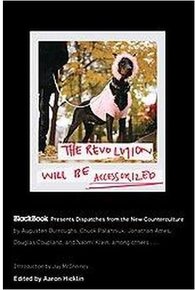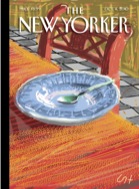 SOUNDTRACK: DINOSAUR JR.-Live at the 9:30 Club, Washington D.C. October 8, 2009 (2009).
SOUNDTRACK: DINOSAUR JR.-Live at the 9:30 Club, Washington D.C. October 8, 2009 (2009).
 This was one of the first shows I downloaded from NPR. I’ve been a fan of Dinosaur Jr. since my friend Al turned me on to Green Mind back in college.
This was one of the first shows I downloaded from NPR. I’ve been a fan of Dinosaur Jr. since my friend Al turned me on to Green Mind back in college.
This is an amazing show created by the original Dino Jr. members. This tour is in support of their second album since reuniting, Farm. This set-list is an outstanding mix of old songs, new songs, Barlow-sung songs and even some songs from when Barlow and Murph weren’t in the band. (Green Mind is still my favorite album by them).
When the band reunited there was much joy, and I’ve said in reviews of the newer albums, I’m not entirely sure why. I mean, Dino Jr has always been about Mascis, and it’s not like Barlow is such an unusual bassist (although Murph’s drumming is always solid). I’ve nothing against Barlow (I love Sebadoh and Folk Implosion) or Murph, it just seems odd to get excited about having them back in the band aside from nostalgic reasons.
Having said that, the band sounds amazing (and yes, Barlow does get to sing on “Imagination Blind”). What never really came across to me until hearing all of these great songs live was that Mascis has always been a great pop song writer. These songs are catchy as hell. But Mascis buries them under loud squalling guitars and a voice that is almost whiny, almost off-key, a total slacker voice. (But you’ll notice it is never actually off-key. He must work very hard at that.)
By the nd of the show Mascis chastises the audience for not moving (we obviously can’t see what they’re doing), saying he forgets that people don’t move in Washington, D.C. But during the encore break, NPR host, Bob Boilen, points out that Mascis himself doesn’t move either–he just stands in front of that wall of Marshall stacks (Boilen wonders how he can hear anything anymore). And looking at the pictures it’s comical the way he looks, surrounded by amps. The picture above doesn’t fully do it justice, but check out the extra photos at the NPR page. And while you’re there, listen to this show. It is amazing. For a total slacker, Mascis can rock a guitar solo like nobody’s business.
[READ: July 20, 2011] The Best American Non Required Reading
I’d been meaning to read this series for years (yup, Eggers fan), But I have a hard time starting “collections” because I feel like I’d rather be reading a novel. Nevertheless, I have most of these Nonrequired books, so it seemed like I should dive into one and see what it was like (I don’t think the year really matters all that much–some of the articles are topical but most are not exactly). Then Sarah said this would be a great book to read on vacation because it’s all short essays, and she was right. It was perfect for late nights when I wanted something to read but didn’t feel like getting involved in the novel I was reading.
DAVE EGGERS-Introduction
Eggers’ introduction is actually a partial short story about kids who go swimming in pools around town. It reminded me of the opening of Life After God by Douglas Coupland, but of course, lots of kids did that so I’m not saying it was “lifted” from DC. The story “ends” (it doesn’t really end so much as stop) with an interesting scene between two unlikely kids who get caught.
After this story Eggers includes these three notes about the collection: It’s not scientific, It’s alphabetical, and We had a lot of help with this. Of the three, it’s the middle one that’s most useful because Eggers says that you shouldn’t necessarily read them in order just because they are printed this way: “In the first half of this collection, you get a good deal of hard journalism, primarily about war and refugees, from Afghanistan to the Sudan, followed immediately by a number of less serious pieces, about malls and Marilyn Manson. We didn’t group anything by theme , and won’t be offended if you skip around.” This was good to know (not that we needed the permission of course), but yes, the beginning of the book is pretty heavy. (more…)
















 SOUNDTRACK: SONIC YOUTH-SYR 7: J’accuse Ted Hughes/Agnès B Musique (2008).
SOUNDTRACK: SONIC YOUTH-SYR 7: J’accuse Ted Hughes/Agnès B Musique (2008).